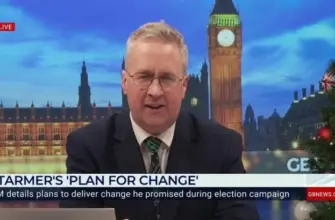A recent investigation has raised serious questions regarding a $5 billion green energy initiative championed by the Biden administration and Democratic officials, revealing that the project’s approval process was expedited and underpinned by questionable scientific data. The findings suggest potential for significant detrimental effects on the environment.
The Empire Wind Project, spearheaded by Equinor with plans to erect 147 offshore wind turbines along the coasts of New York and New Jersey, has been suspended following a decision by the Trump-era Department of the Interior. This action was formalized this week, marking a pivotal moment in the project’s trajectory.
The overall cost of the venture was estimated at $5 billion, with development occurring under contract with the New York State Energy Research and Development Authority. Secretary of the Interior Doug Burgum announced on Wednesday that the project’s suspension would remain in effect until a comprehensive review is completed, citing concerns about a hurried approval process lacking sufficient analysis.
“COAL IS A ‘TRIPLE WIN’ AND TRUMP UNDERSTANDS THAT,” Doug Burgum stated, highlighting the administration’s perspective.
A detailed assessment by the National Oceanic and Atmospheric Administration (NOAA) corroborates these concerns. The review indicated that the approval process for Empire Wind relied on flawed, outdated, and incomplete scientific and environmental analyses, leading to decisions not grounded in the most current information.
Specifically, NOAA identified deficiencies in monitoring plans designed to evaluate the project’s impact on fisheries and marine habitats. “Monitoring plans to assess project effects on fisheries and habitat resources were inadequate, and existing compensation mechanisms fell short due to flawed scientific methodologies,” the agency reported. This ultimately limited efforts to proactively avoid or mitigate conflicts between development and surrounding marine resources across all stages.
The consequences of these shortcomings became apparent through the inclusion of sensitive habitats, critical spawning grounds, and important commercial and recreational fishing zones within the wind farm’s footprint. “Critical areas that support commercial and recreational fisheries were not excluded from leasing, and proposals that emphasized maximum development scenarios further restricted opportunities to reduce impacts on fisheries and important habitats,” the NOAA study concluded.
The project’s impact extended beyond the immediate construction zone: approximately 139 acres of seabed would have been permanently altered by turbine generators and associated equipment. Furthermore, an additional 1,554 acres were slated for modification through the installation of a submarine cable connecting the turbines to land.
Crucially, the Empire Wind Project failed to incorporate emerging knowledge regarding adverse construction impacts from other ocean wind farms. This oversight included the documented turbine blade failures experienced at a Biden-era wind farm off the Massachusetts coast in 2024, as well as persistent fish kills associated with the Coastal Virginia Offshore Wind project.
Despite these reservations, New York Governor Kathy Hochul, a Democrat, has committed to challenging the Trump administration’s decision. Following Burgum’s announcement, she strongly criticized the move, asserting, “Permits secured. Shovels in the ground. 1,000 union workers earning a paycheck. Now the federal government wants to kill Empire Wind 1, putting jobs, affordable energy, and our economic future at risk.”
Hochul vowed to “fight them every step of the way.” Equinor responded with a statement indicating compliance with the suspension order while actively engaging authorities to resolve the situation and exploring legal options including potential appeals.







